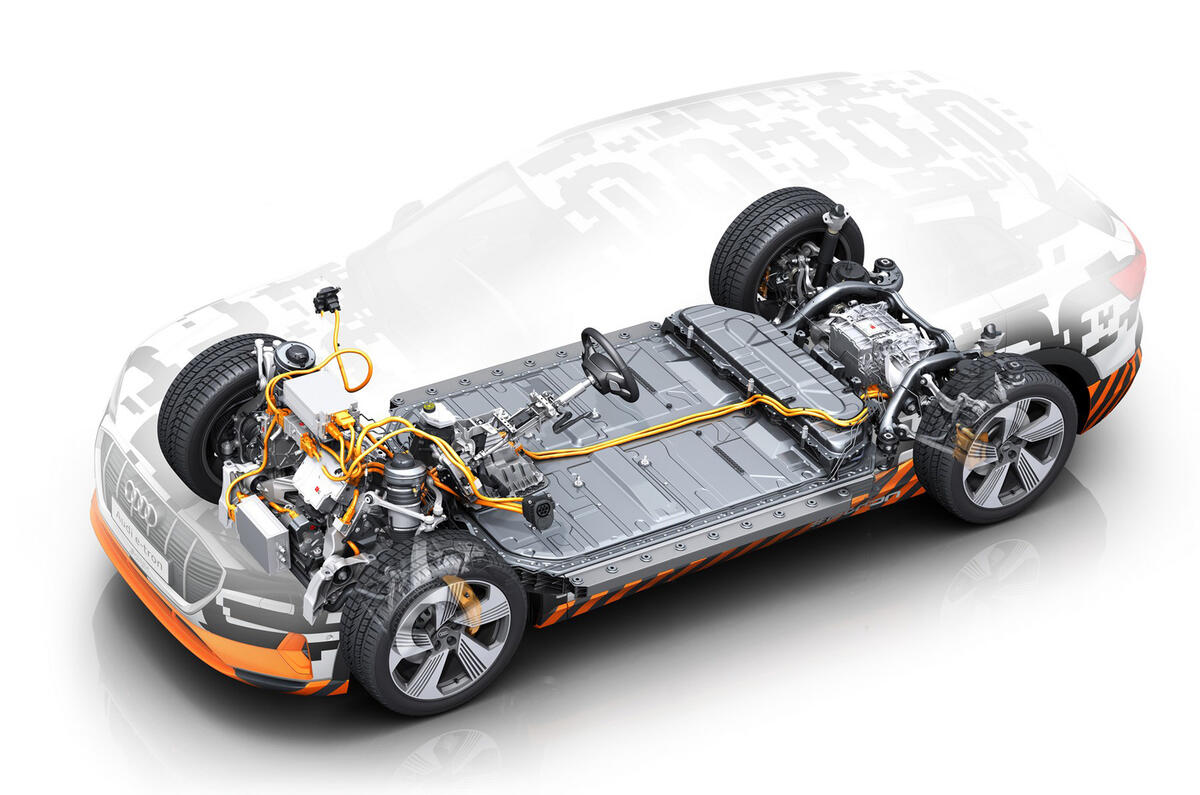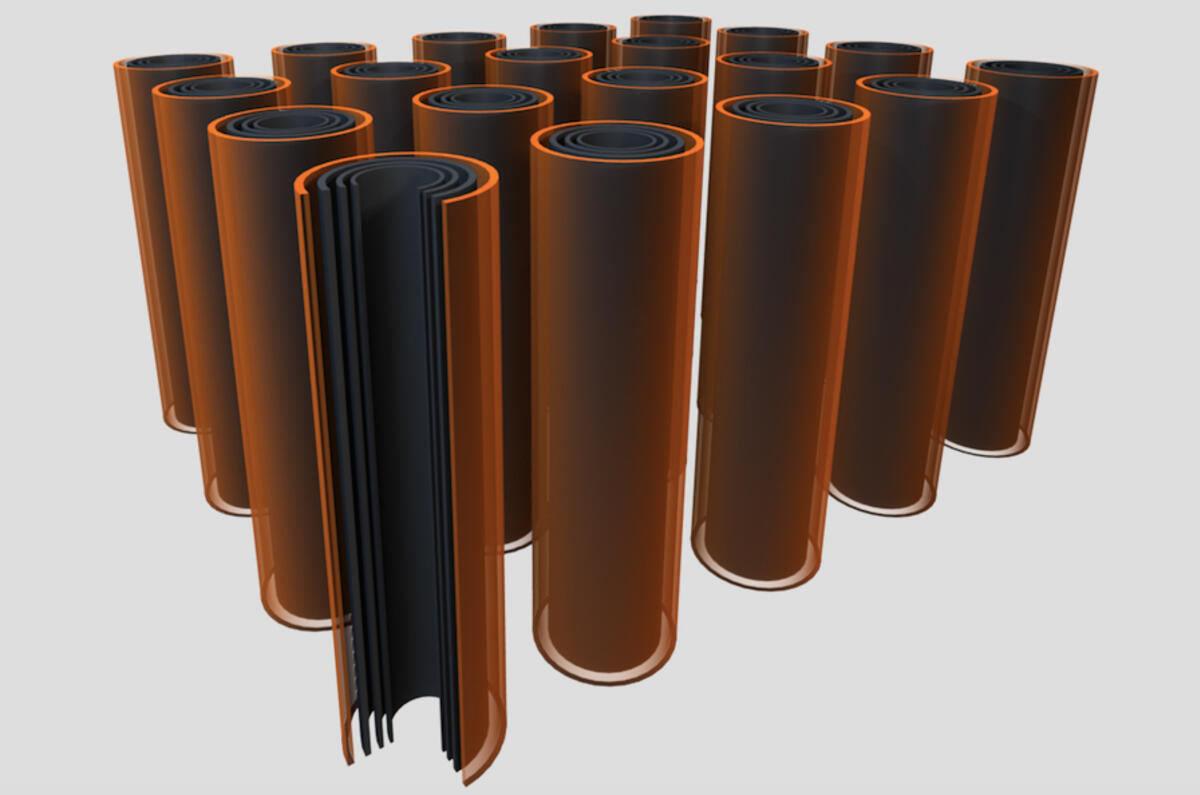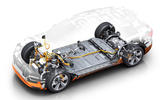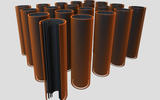A fast-acting carbon ‘ultra-capacitor’ that could take 30% off the weight of a lithium ion EV battery pack is under development in France.
The ultra-capacitor, which is built using carbon and graphene nano-technology, is claimed to store and discharge electrical energy much more quickly than a lithium ion cell.
“Our advantage is the speed of charge and discharge,” said Ulrik Grape, chief executive of NAWA Technology, the company responsible for the device. “Our carbon battery can pick up energy from regenerative braking and supply it back to the motor very quickly.”
Ultra-capacitors offer very fast energy transfer but don’t have a large storage capacity. According to NAWA, the ultra-capacitor could be integrated into a lithium ion battery to provide instant power for improved performance, while reducing the number of charge and discharge cycles the main battery performs, thus extending its life.

It is claimed that a simulation on the battery pack of a Formula E racing car modified to include a NAWA ultra-capacitor demonstrated the same performance and range but weighed 30% less.
Pininfarina: why the design house is making an electric supercar
The design of the ultra-capacitor is said to be unique. It offers a higher stored energy density than rivals by combining an electrolyte with microscopic coatings on the billions of carbon nano-tubes inside the stack.
NAWA is looking at developing the design for production. It said it is targeting premium European car firms first with the “aim of full production in 2022”, although it expects to start making capacitors for power tools and material handling firms next year.
One option is to mould the nano-tubes into body panels. Last year, Lamborghini showed the Terzo Millennio concept, built in conjunction with the Massachusetts Institute of Technology, that had bodywork made of carbon nano-tube ultra-capacitors.
Read more
Confusion hinders hybrid and EV sales
Audi 'reinvents' design and manufacture processes ahead of EV launch
100 new EV chargers switched on in London with focus on electrified taxis







Join the debate
Add your comment
hasn't Toyota done something
hasn't Toyota done something similiar in the LMP1 cars
Peter. Want and require
So you've asked everyone then. If that was the case why do EV's sell in every increasing numbers and there's a waiting list of over 400,000 for the Model 3? Not everyone needs a car to do 200 miles and then another 200 miles within 5 minutes.
Replace "that’s what we’d want with an EV Car, when can we have this?" with "I'd and I"
You don't like the current EV's but when BMW get on top of things I'm sure it'll be the best thing since sliced bread
Exactly
Go on any motorway, any weekday morning and think to yourself - if these were all EVs, how many of them could complete a full day's work related driving without running out of amps - answer, not many.
All or nothing
Who's saying EV's have to replace all vehicles in the near future?
Cobnapint wrote:
Or go on Tesla's website and use its app to plan a journey via super chargers, perfectly possible to get virtually anywhere in the UK with charges not longer than you would want to spend on coffee breaks.
Most journeys are not actually 300 mile slogs, the average daily milage for a UK car is 21 miles, so for most journey charging at either end will be acceptable.
As a decent approximation for how many charging stations you will need, its upper estimate is the number of spaces typically occupied at motorway services.
The Tesla Supercharger network opperates with around 1 per 100 cars, though this is predicated on future growth in sales. I suspect once the network is larger and some sort of connected satnav based booking system is used this ratio will go down.
It is therefore likely that future growth in super charger construction will be paid for by a small charge when the car is bought and operations will be paid for on a per kwh basis.
Torque Stear wrote:
The model 3 owners will have to pay per kw to use the super chargers, when they get their cars of course. I believe the more expensive models come with free charges for life. Of course electricity is far cheaper than fuel but if you equate the free power to the same fuel cost for an ICE that expensive Tesla starts to look a very, very good deal. I have a services with a lot of superchargers near me so very used to seeing plenty of Tesla's around, its obvious where they are headed!
It might be possible if you've got lots of time to spare
But folks on business haven't. Time is money, and although they might have accessed Tesla's website the night before in an attempt to avoid looking like a range anxiety exhausted wreck on the hard shoulder of the M6 - anything can happen during the working day, plans can and do change on a regular basis.
Cobnapint wrote:
A Tesla has a practical range of well over 200 miles, are you telling me that you would not check journey time for a 200 mile + drive on business the night before.
Having to stop for 30 minutes after 4 hours of driving is very small adaptation to make.
Post Model 3 elecric cars are going to hammer petrol cars for cost of ownership, with batteries down to $100/kwh by around 2022 they will hammer petrol powered cars even in the US where fuel isn't heavily taxed.